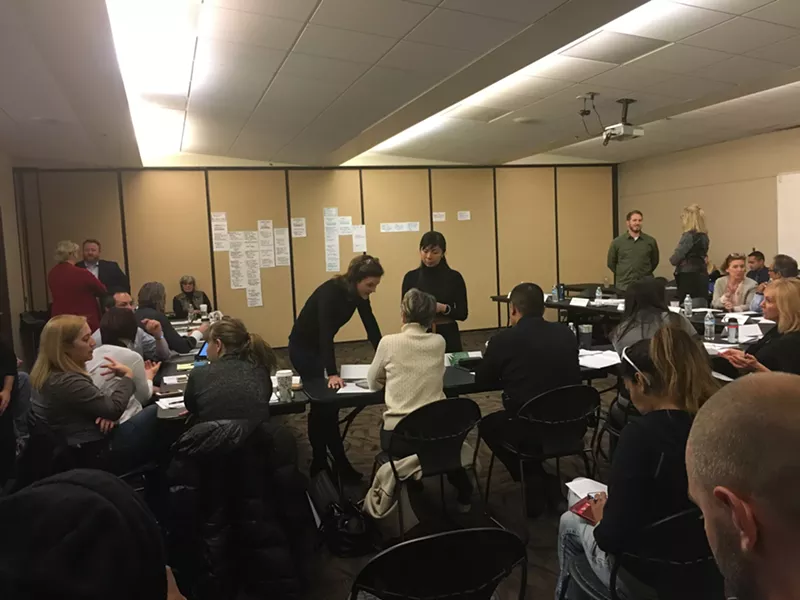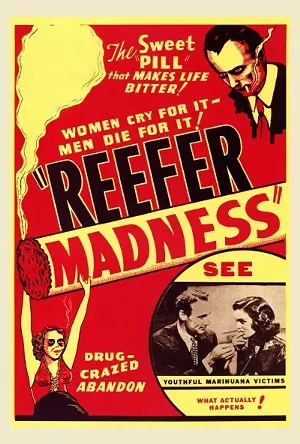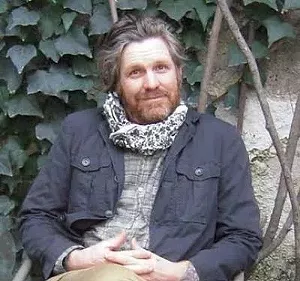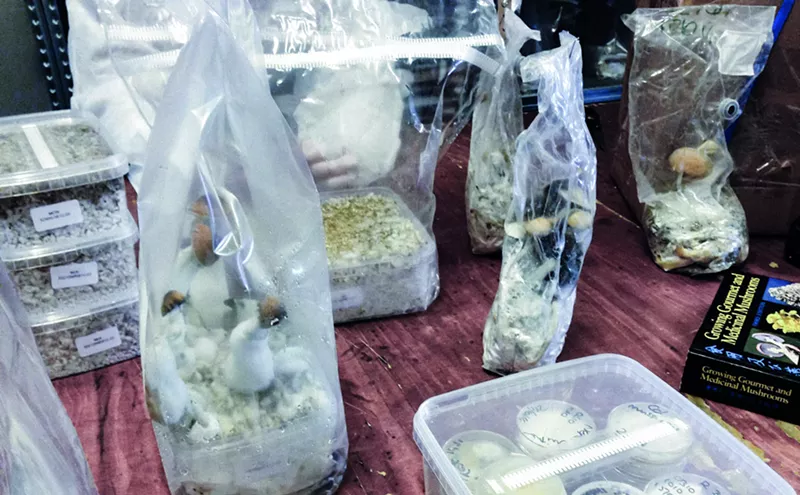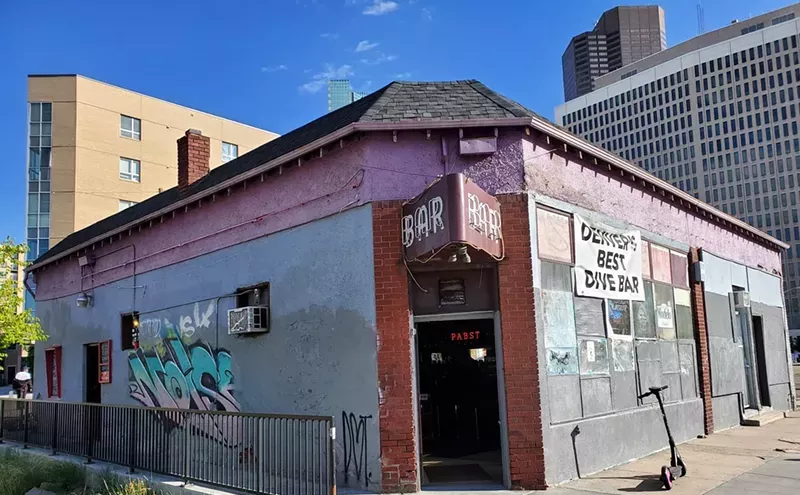If you want to keep a marijuana meeting going smoothly, don't mention Reefer Madness.
The second-to-last meeting of Denver's Social Consumption Advisory Committee took an interesting turn on March 24 when Dan Landes, the group's business representative and owner of City, O' City and the soon-to-reopen Campus Lounge, used that term — and offended some members of the committee.
Concerned that the committee was making requirements for social-use applications too complicated, Landes said he was worried that many small businesses would be barred from applying. "I wonder when everybody imagines what this marijuana social consumption area looks like, what they have in their head?" Landes asked. Most of the people he'd heard from — either personally or when they reached out to the committee — with ideas about implementing social consumption under the provisions of Initiative 300 are not bar owners or coffee shop proprietors, Landes pointed out; they're entrepreneurs hoping to add cannabis into an already established business or recreational activity.
Citing a spa owner who wants to apply infused topical ointments, PTSD support groups that would like to allow cannabis use for therapy, and glass-blowing events that would like to have social use, Landes explained that such examples are much more likely under this rule, and none of them represent the <i>Reefer Madness</i> stereotype.
"I don't know what people are imagining with this thing, but when we're starting to put these hurdles so high, we're not responding to what the public is really coming to the table with in terms of entrepreneurs," Landes added. "I just want to calibrate the group to say, let's listen to what's been said by the public and respond to that and take these <i>Reefer Madness</i> kinds of scenarios out of our heads."
Some members took offense at Landes's comments. Aubrey Lavizzo, a community representative on the committee, called for a brief time-out so that he and a few other members could reconnoiter — a first at these meetings. "I've lost my focus," he said. "I'm going to ask for a quick break to talk with our group outside, if that's okay."
It was, and Lavizzo was joined in the hall by the committee's other community representative, Jude Del Hierro, along with Margie Valdez of the Inter-Neighborhood Cooperation representative. When they returned, Ashley Kilroy, director of the Denver Department of Excise and Licenses, called the meeting back to order.
Referencing the type of responsible businesses that Landes had cited, Kilroy explained that the committee's job is not to plan for the social-consumption venue that does everything right and goes above and beyond what's required, but to anticipate the worst-case scenario. "We're planning for the lowest common denominator. [I-300] will do all kinds of things that we're probably not even anticipating...so right now, we need to anticipate for the worst possibilities," she said.
Landes then said that his comments were not aimed at anyone on the committee and apologized if they'd been taken that way. But he explained that it was important to recognize what these businesses wanted to do. "This is an alternative to bars," he said. "What I've been hearing as I've been talking to people is that they're more interested in focusing on creative endeavors than destructive behaviors, so I wanted to put that into the realm as we address this. As an entrepreneur, as a business owner, I'm trying to figure out why someone would go through something like this...."
While Landes comes from the business side and places his faith in other business owners, Lavizzo said he wanted to be sure the committee puts every precaution in place, especially since Denver is the first city to implement this kind of program. "The country is looking at us as a model," he added. "We want this done right. My perspective as a community representative — I want to close every loophole I can to keep my community safe."
After the public airing of their differences, committee members went on to discuss issues relating to public hearings. And here they quickly came to agreement that a public hearing is not the place for people to vent about legalization or the implementation of social use, as both are realities that Denverites are just going to have to deal with.

Audio By Carbonatix
[
{
"name": "GPT - Billboard - Slot Inline - Content - Labeled - No Desktop",
"component": "23668565",
"insertPoint": "2",
"requiredCountToDisplay": "2"
},{
"name": "STN Player - Float - Mobile Only ",
"component": "23853568",
"insertPoint": "2",
"requiredCountToDisplay": "2"
},{
"name": "Editor Picks",
"component": "17242653",
"insertPoint": "4",
"requiredCountToDisplay": "1"
},{
"name": "Inline Links",
"component": "18838239",
"insertPoint": "8th",
"startingPoint": 8,
"requiredCountToDisplay": "7",
"maxInsertions": 25
},{
"name": "GPT - 2x Rectangles Desktop, Tower on Mobile - Labeled",
"component": "24956856",
"insertPoint": "8th",
"startingPoint": 8,
"requiredCountToDisplay": "7",
"maxInsertions": 25
},{
"name": "Inline Links",
"component": "18838239",
"insertPoint": "8th",
"startingPoint": 12,
"requiredCountToDisplay": "11",
"maxInsertions": 25
},{
"name": "GPT - Leaderboard to Tower - Slot Auto-select - Labeled",
"component": "17676724",
"insertPoint": "8th",
"startingPoint": 12,
"requiredCountToDisplay": "11",
"maxInsertions": 25
}
]

